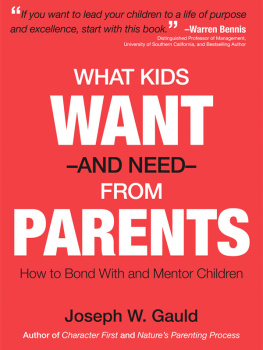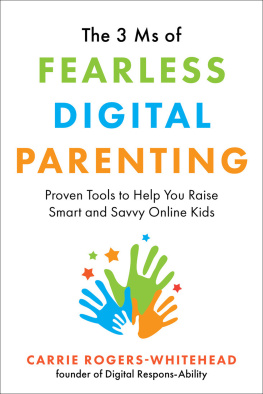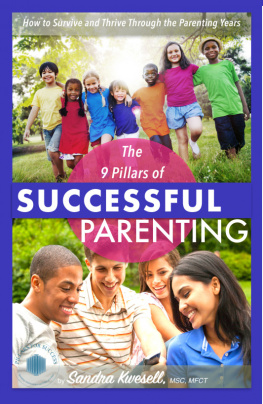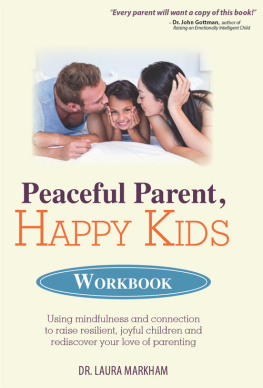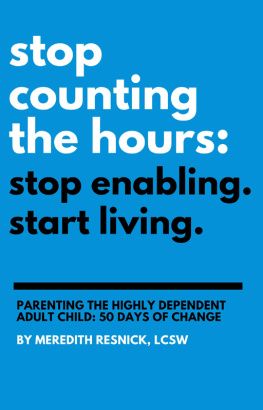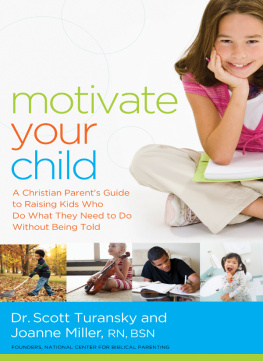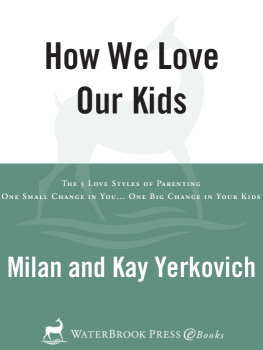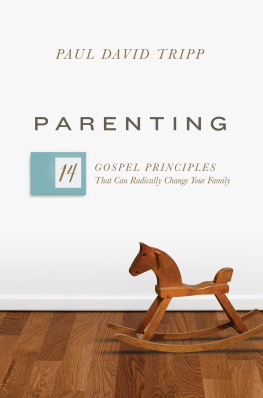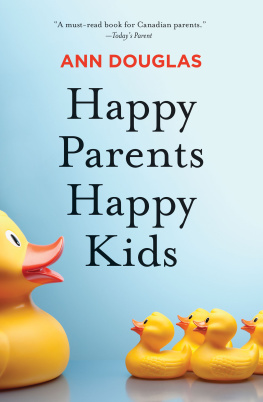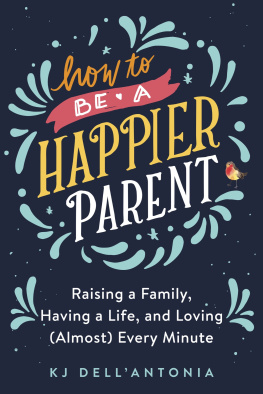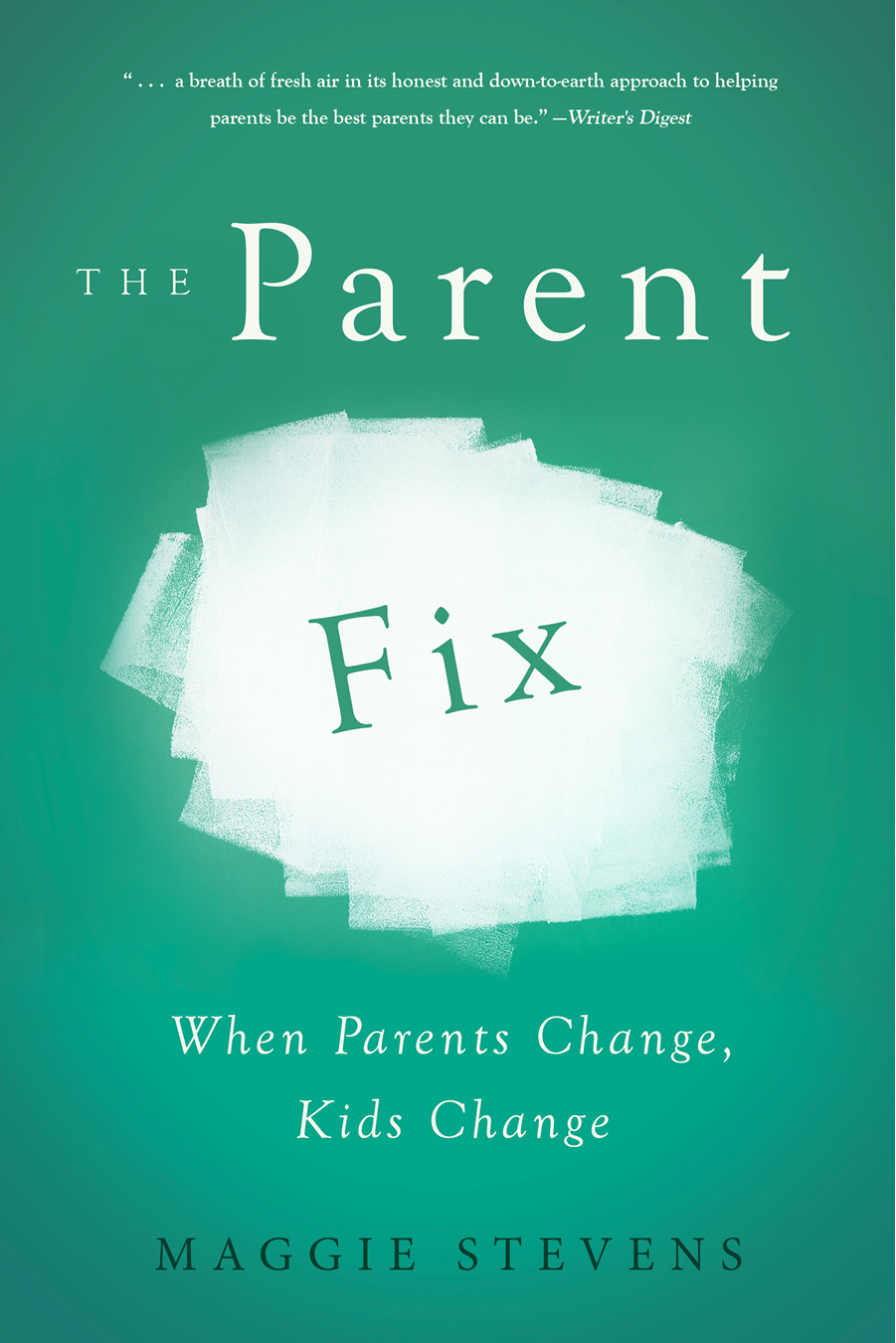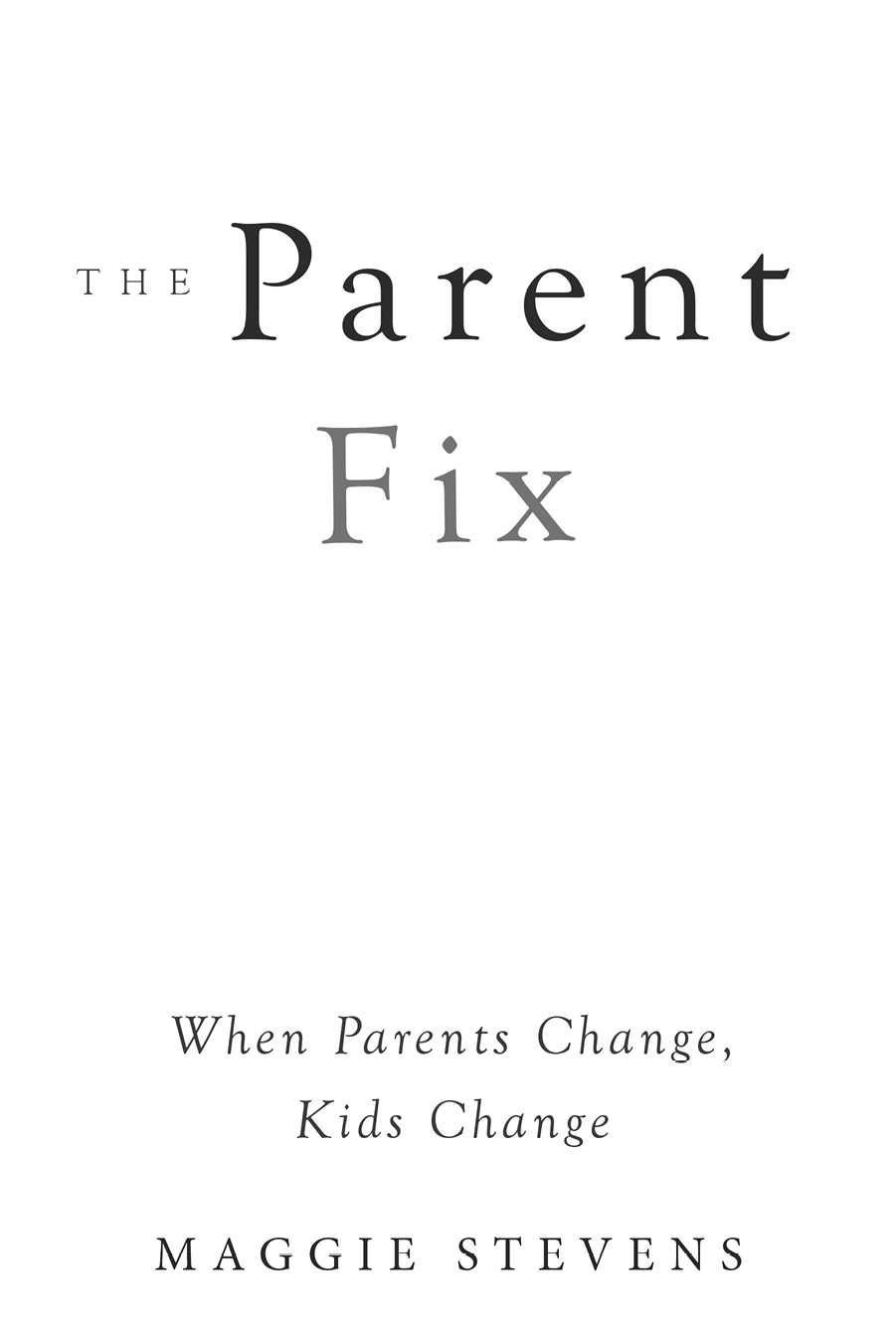Introduction
When I Changed, He Changed
T he boys on my sons baseball team had played ball together for years and were the best of pals. They cheered together wildly when a teammate knocked a ball out of the park and tormented each other mercilessly when someone struck out. I watched them in the dugout as they chewed on big wads of gum and high-fived each other while they kept up a steady flow of chatter. At the naive age of thirteen, grade school was a thing of the past. They were on their way to middle school. Exuberance for life was evident on their faces. Life was so simple and so good.
As I watched my son step up to the plate, I realized this brief period would soon come to an end. This group of boys would no longer play ball together as a team after this season. Some would move on to a higher level of baseball. Others would drop baseball, eager to pursue different dreams. Challenges would enter their lives. Girls were becoming interesting, and a variety of school activities would soon pull them apart. The boys did not realize what we, as parents, knew would be inevitable: their lives would head in different directions, never returning to this period of time. They would never be thirteen again. I wanted to tell my son to cherish this moment as it would soon be gone. When the last of childhood melts away, nothing is ever the same again.
The boys had much life yet to experience. They were ready and excited to face whatever new opportunities were presented. As I watched my son, I realized that although he might be ready, I was not. I was not prepared for him to move on. I had this nagging feeling I had not done enough. Was he ready for the experiences he would encounter in the next few years? How would he respond when introduced to alcohol... drugs... parties... truth-or-dare games? At that moment, a terrible thought crossed my mind. What if he failed?
Suddenly, the simplicity of the evening at the baseball park was gone. I shut my eyes and said a silent prayer. Was there any way to let him skip this next stage in his life and move into adulthood unscathed? I was ready and willing to try. With those fears racing through my head, I wished I could eradicate those awful teenage years from existence. Deep down, I knew my son had to go through them. The challenges he faced during high school would be the driving force he needed to help him develop. These experiences would mold him into the adult he would soon become. But to think about it was frightening. Again, I wondered... have I done everything possible to prepare him for what lies ahead?
My fears were well-founded. Over the years, I had watched as multiple friends lost their teenage children to full scale rebellion. These kids, who were their parents greatest sources of pride and joy, had now metamorphosed into holy terrors, defying authority, drinking excessively, partying, and ignoring any parental jurisdiction.
When asked what was going wrong, the parents seemed as confused as the kids. When their children refused to respond to their pleas, parents tried counseling. The counseling might solve the problem for a short period of time, but eventually, in spite of their efforts, the same poor behavior adjusted back to the way it had been. There seemed to be one question that resurfaced again and again:
What have we done to deserve this behavior from our kids?
This was not how these parents had planned out their lives. They loved their children and felt they had done everything within their power to raise good kids and create a happy home life.
As I watched what they were going through, it frightened me. My dreams of what a family should be seemed impossible. What made me think my life would be any different from that of my friends? Sitting here at the baseball park, I pondered this question. I looked at my son. He was warming up on deck. In his face, I saw an innocence that made me think there had to be a better way. I did not want to lose our relationship. I left the ballpark that evening determined to figure out what it took to be successful at this parenting thing.
In the days that followed, I searched for a plan. I went to the library and checked out books on parenting. I read and read and read. Some of the advice was good, but after trying it on my own children, I found it did not work. I was also surprised to discover that many of the authorities writing these books had never raised children. Did they truly understand what it took to parent day in and day out? The advice they gave sounded good, but the concepts were impossible to implement. I have found that the lessons I learned from real life experiences have been the most valuable to me.
I did not need answers that sounded good. I was looking for someone who knew what they were talking about. I wanted information that worked. I changed my approach, quit reading so much, and began observing parents in action. I watched parents at school functions, church meetings, and grocery stores. I watched every interaction I could between parent and child. I got as close as I dared, close enough for eavesdropping on conversations. At first, it appeared that all the parents I witnessed were struggling with their teenagers. These families did not get along, and they certainly did not enjoy spending time together. It was discouraging to watch, but I refused to give up. There had to be a better way.
I kept watching. The more time I spent observing and analyzing, the more I began to notice differences. Not all parents were feuding with their kids. There were a few, a small few, who were actually enjoying their teenagers. Those interactions were different. In the market, they were not fighting over what they would have for dinner. They were laughing, planning, and making decisions together, throwing both Twinkies and apples into the cart.
At the airport, one family caught my eye. They were in a crowded terminal waiting for a delayed flight. While everyone around them was stressed and was pacing the terminal, this family was spread across the floor, laughing and playing cards. I witnessed a love that exhibited itself in their interactions with one another, a respect that was exemplified in their conversations. These parents were doing something different, and it was working.
This familys kids appeared to be happy and content. The tension I had witnessed in other families was nonexistent. I am sure this family must have had their problems; no family is free of problems. But what impressed me was how they seemed to enjoy being together.
Another family particularly impressed me with how well the parents related to their children. I had seen them numerous times around the neighborhood. I got bold and approached the mother. I am sure I surprised her with all of my questions about her unique style of parenting, but from her answers, I found a mother with confidence in the relationship she had with her kids. She knew what she was doing. I watched as she joked with her daughter about situations and subjects that other parents would never have dared discuss.
She was pleased I had noticed the difference in her family. Of course, she knew there were differences, and she was flattered I would even ask. She challenged me. If I was willing to learn, she would teach me all that she knew. I could see the results this woman was getting from her teenagers, and I needed to know how she was actually doing this. As a young, naive mother, I had no idea what I was getting myself into... or the changes that were about to occur in my life as a result. Thus, I stumbled onto my first apprenticeship. During the next few days, she answered all of my questions, giving me every piece of advice I could digest. At times I was skeptical of her unique ideas, but I listened closely to the information she gave me. I tried each of the suggestions she gave me, and they worked!


